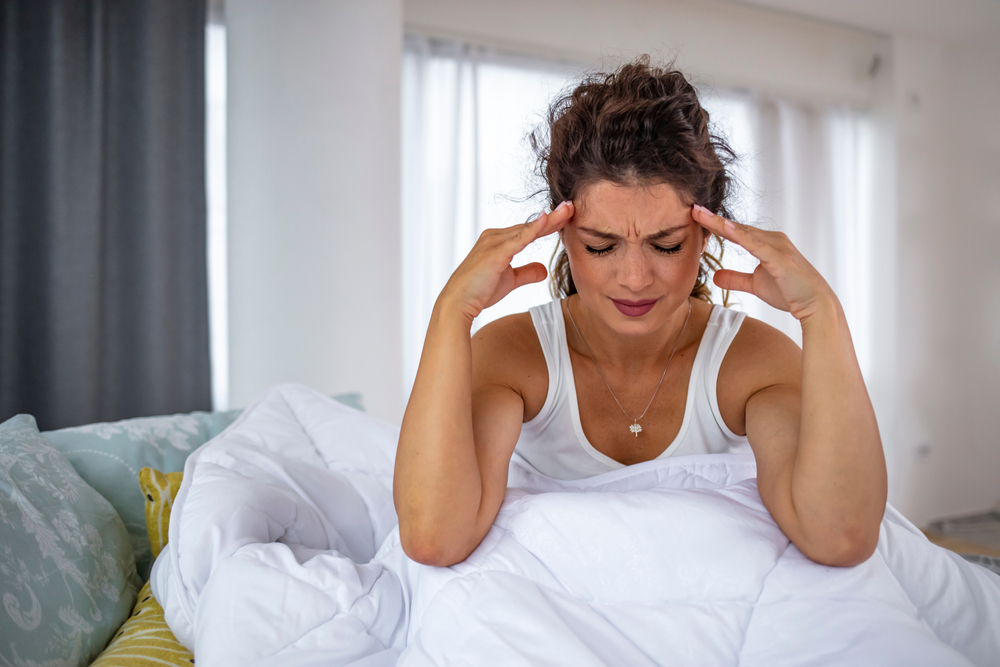The medical definition of anxiety provided in the Merriam-Webster Dictionary is “an abnormal and overwhelming sense of apprehension and fear often marked by physical signs (such as tension, sweating, and increased pulse rate), by doubt concerning the reality and nature of the threat, and by self-doubt about one’s capacity to cope with it.”
Anxiety is the body’s natural response to stress and depending on its severity can manifest in a variety of ways, including:
- The release of stress hormones: Anxiety affects certain hormones in the brain, including cortisol, known as the primary stress hormone, and corticotropin releasing factor (CRF), which is the neuroendocrine system mediating the stress response.
- Causes the amygdala to enlarge: An enlarged amygdala (area of the brain that perceives feelings of stress, anxiety, irritability, and processes fear) intensifies the body’s response to threatening or scary situations.
- Shrinks the hippocampus: The hippocampus (area of the brain associated with learning and memory) connects to the amygdala, and together they control emotional memory recalling and regulation.
- Weaken structural brain connections: Anxiety can weaken the connection between the amygdala and pre-frontal cortex (area of the brain that reigns rational thought, impulse control, executive planning, and more), making it difficult for the prefrontal cortex to send a logical response to danger to the amygdala. This can increase one’s sensitivity to danger and hinder one’s ability to develop rational responses.
Anxiety can also adversely affect one’s excretory and digestive systems, leading to loss of appetite, stomachaches, nausea, diarrhea, and other digestive issues.
Anxiety Attack: Signs and Symptoms
When an individual experiences a sudden and intense episode of fear and anxiety it is known as an anxiety attack. The following examples include signs and symptoms that can be the result of anxiety, many of which are commonly associated with anxiety attacks, provided by Medical News Today:
- Loss of concentration
- A rapid heart rate
- Restlessness
- Dizziness
- Shortness of breath
- Dry mouth
- Chest pain
- Being easily startled
- Sleep disturbances
- Fear
- Muscle aches and pains
- Irritability
- Numbness or tingling in the extremities
- Feeling of choking
- Worry and/ or distress
Anxiety attacks can range in severity and duration. Each person is unique and as such different triggers can initiate the onset of anxiety and/ or anxiety attacks in different people. Typically, the symptoms of anxiety attacks come on suddenly, and the intense symptoms can leave a person with residual effects of anxiety long after (e.g., hours, weeks, or even months) an anxiety attack has subsided.
Further Information and Support
For most of us, life can be very stressful, leading us to feel emotionally charged, which can cause anxiety, panic attacks, depression, and getting stuck in a cycle of being burdened with negative thoughts. Navigating through the challenges and emotional turmoil of life can be overwhelming, but you do not have to go through it alone. Engage Treatment is a Joint Commission Accredited professional psychological practice. We specialize in treating children, teens, and young adults struggling with depression and anxiety through community-focused treatment plans that incorporate a carefully selected combination of therapeutic interventions. Our compassionate, multidisciplinary practitioners are devoted to providing the highest quality of care that helps ignite positive change and enables clients to reach optimal health and well-being. Please do not hesitate to reach out for guidance. We are happy to answer questions and provide you with any additional information. Feel free to call us at 805-497-0605 or email us at [email protected]. You are also welcomed to get in touch by filling out our contact form. We look forward to connecting and having the opportunity to discuss how we might best be able to support you.
Contact Us
Westlake Campus:
IOP Program
2625 Townsgate Road, Suite 210
Westlake Village, California 91361
Agoura Campus:
Private Therapy & Parenting Program
30300 Agoura Road, Suite 250
Agoura Hills, CA 91301
805-497-0605
805-371-4862











© 2023 Engage Treatment Program, Inc. All Rights Reserved.
LGBTQ Friendly
About
• About Engage
• Our Team
• Career Opportunities
• Individual / Family Therapy






